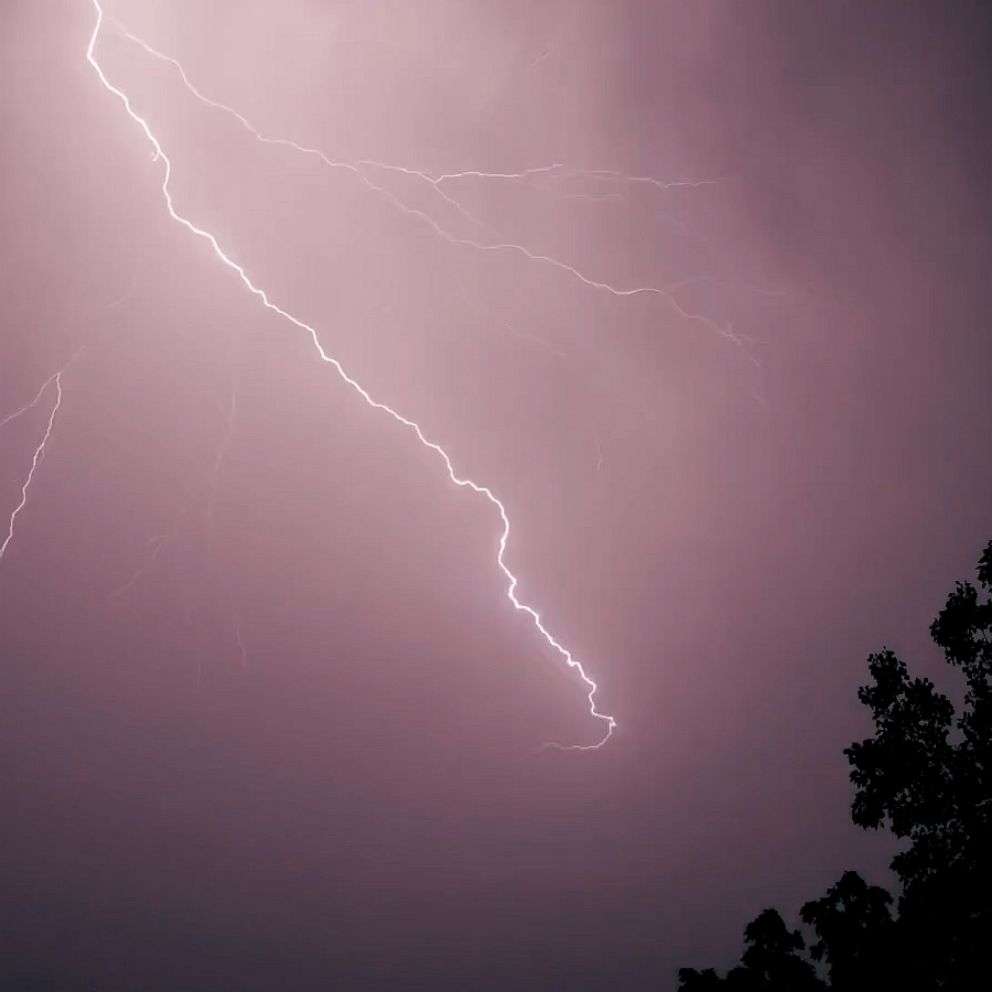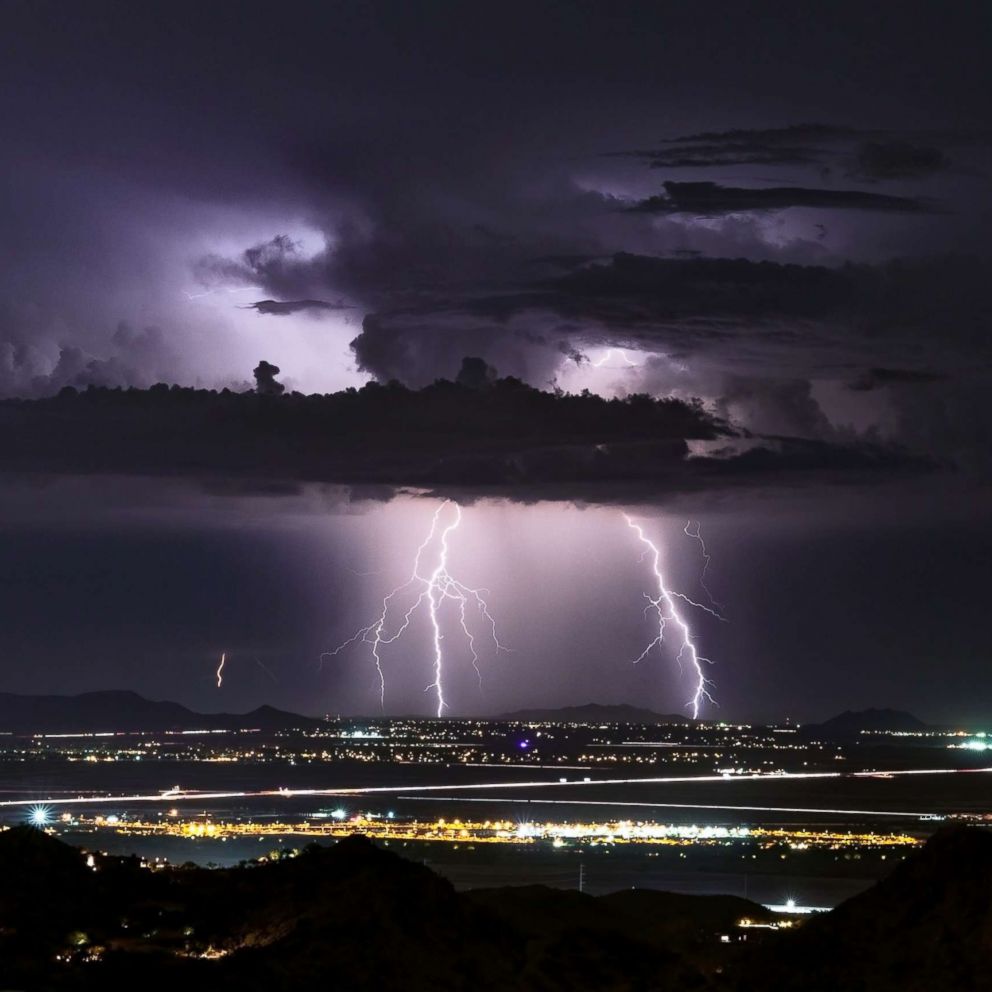Teen speaks out from hospital bed after surviving lightning strike
"I was trying to scream but I was unable to scream."
A Florida teenager is lucky to be alive and speaking out from his hospital bed after surviving a lightning strike.
Daniel Sharkey told "Good Morning America" he was doing yard work for a neighbor in Altamonte Springs, Florida, on Monday when he was struck by lightning.
"I was just weed whacking right in front of some trees and the next thing I know, I woke up face down on the ground," the 17-year-old recalled.

A neighbor's home security video caught Daniel on camera before and after he was struck. Afterward, he said he couldn't remember what had happened.
"I was knocked unconscious and I was trying to figure out what happened. I, you know, for a second, I was like, 'Is this like heat stroke?'" Daniel said.
Following the lightning strike, neighbors rushed over to help the teen, who was lying on the ground near the sidewalk.
"I couldn't move my extremities," Daniel said. "I was trying to scream but I was unable to scream and it felt like an eternity and my ears were ringing."
Daniel Sharkey has spent two days at Orlando Regional Medical Center so far.
He is one of dozens of Americans who have been struck by lightning in 2024, according to the National Lightning Safety Council.
According to the National Lightning Safety Council, about 90% of lightning strike victims survive. However, strikes have been occurring more frequently, and since 2006, there have been 486 fatalities from lightning strikes. Each year, there are about 20 lightning strike deaths in Florida, which leads the country in the number of lightning strike fatalities.
John Jensenius, a lightning safety specialist with the National Lightning Safety Council, said people should go indoors when a lightning storm begins.
"If a storm is within 10 miles, you need to get inside right away," Jensenius said. "That's about the distance you can hear thunder. If thunder roars, go indoors."
Experts add that when lightning starts, you should not seek shelter under a tree, a popular misconception. Lightning tends to strike the tallest thing and standing under a tree can put you in danger.







